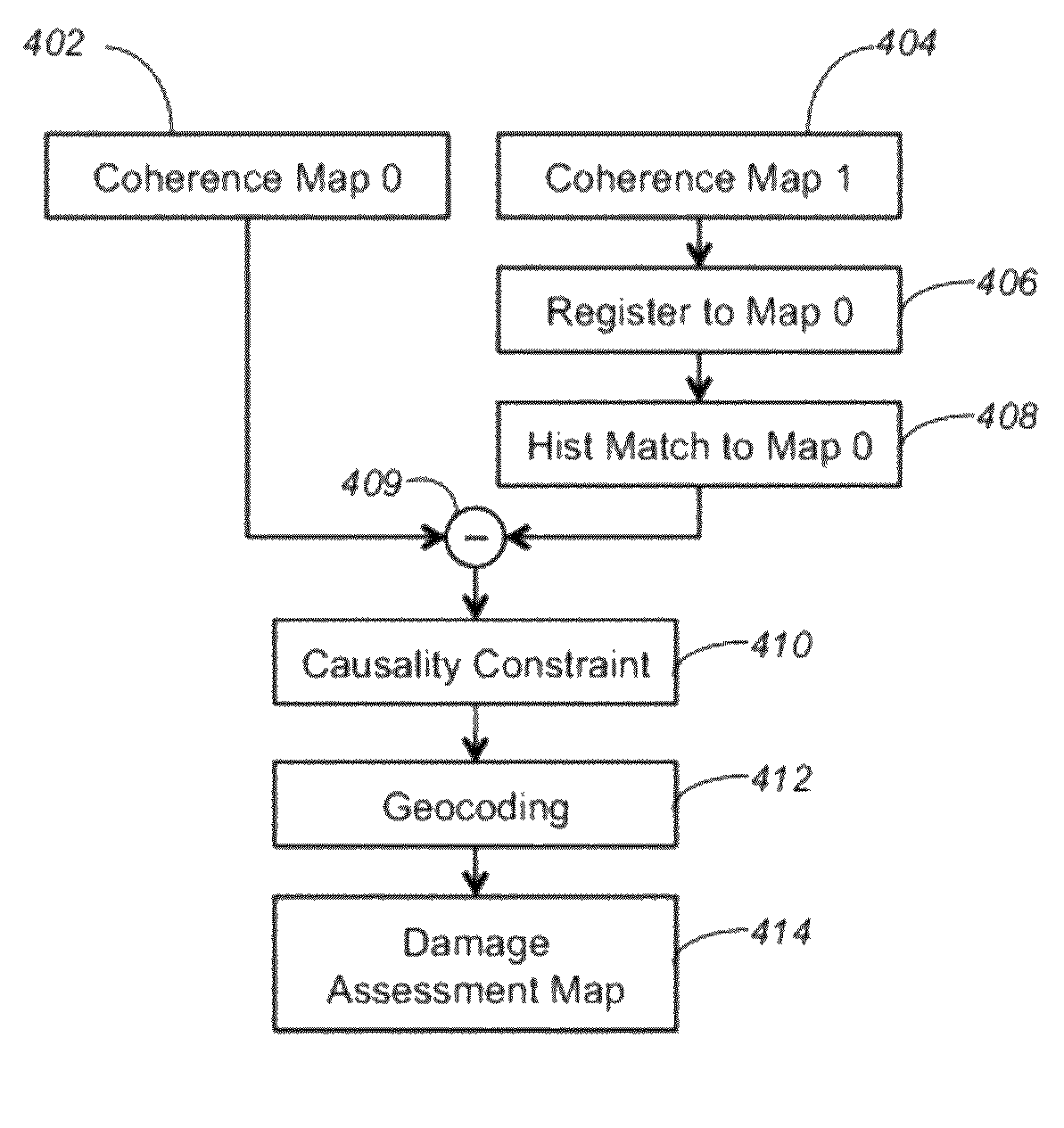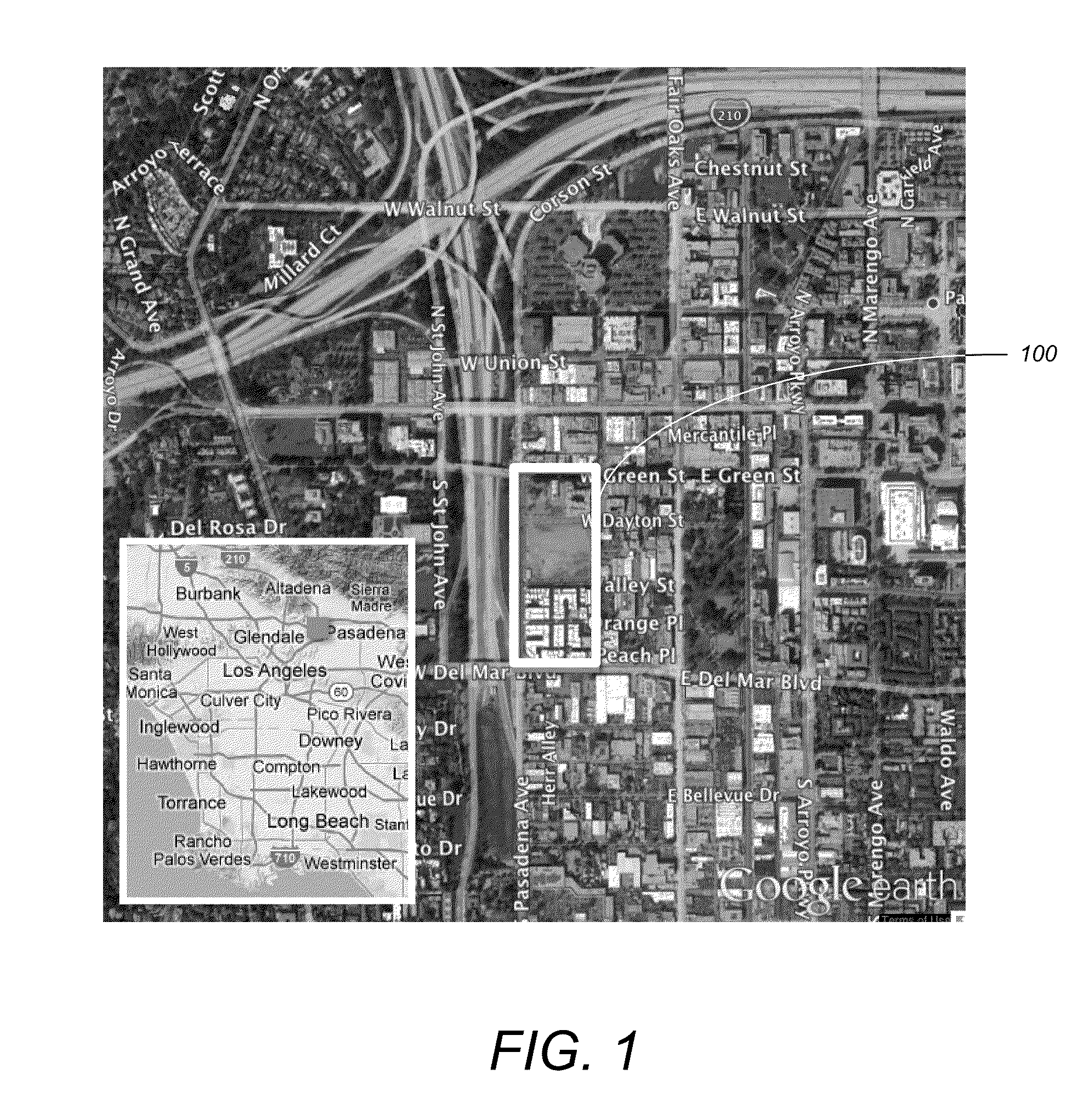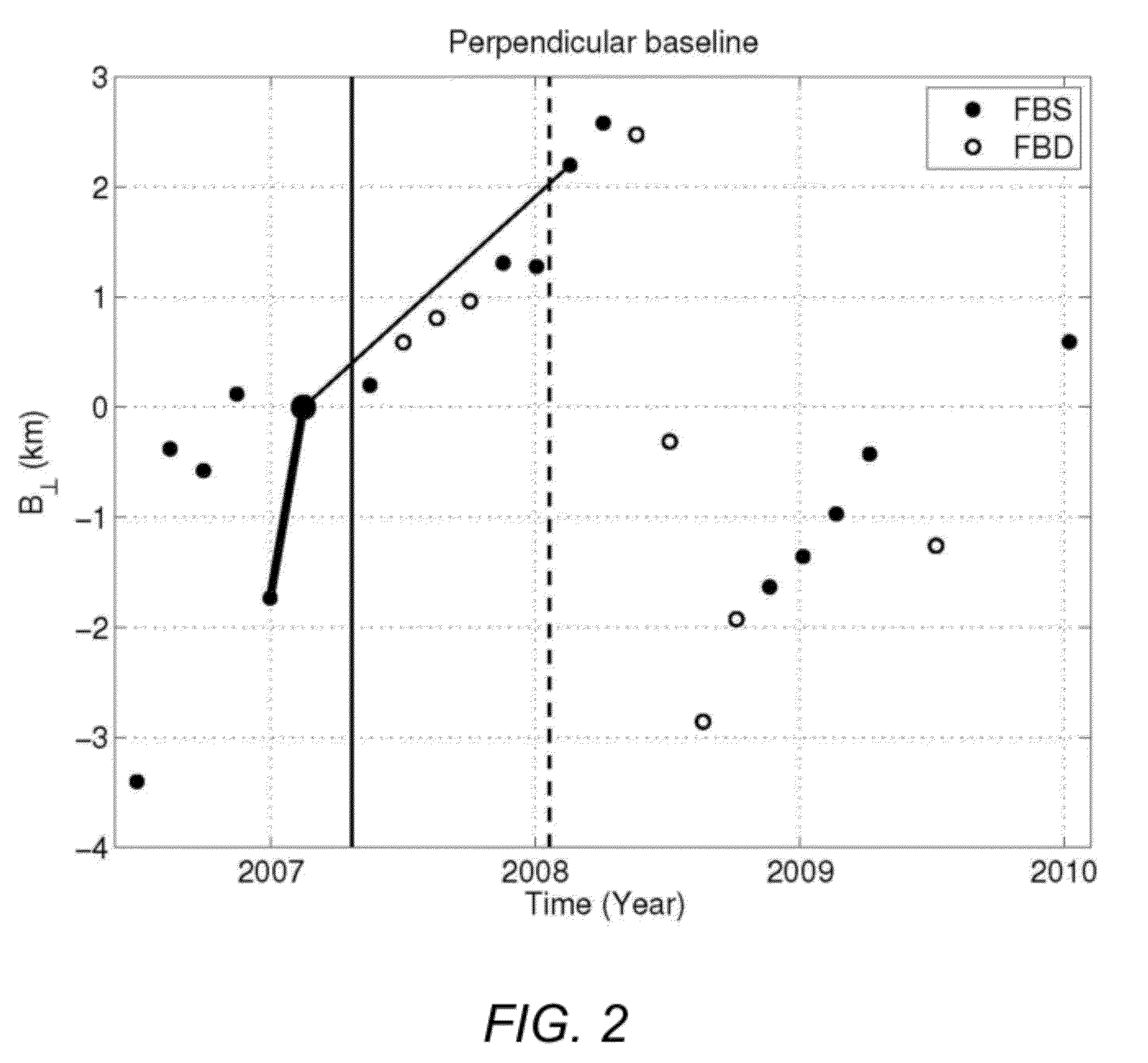Damage proxy map from interferometric synthetic aperture radar coherence
a synthetic aperture and proxy map technology, applied in the field of damage assessment, can solve the problems of building collapse, claiming the lives of many, and building collapse, and achieve the effect of suppressing background clutter
- Summary
- Abstract
- Description
- Claims
- Application Information
AI Technical Summary
Benefits of technology
Problems solved by technology
Method used
Image
Examples
Embodiment Construction
[0038]In the following description, reference is made to the accompanying drawings which form a part hereof, and which is shown, by way of illustration, several embodiments of the present invention. It is understood that other embodiments may be utilized and structural changes may be made without departing from the scope of the present invention.
Overview
[0039]Embodiments of the invention provide a methodology that produces robust damage maps. As an example, embodiments of the invention were used to detect a building demolition project in downtown Pasadena, where 2.5 building blocks were demolished for new apartment complex. The results show clear detection of the demolition site both in space and in time. The anomalous signal starts showing up immediately after the building demolition began and clearly shows up as red blobs in the damage map. During the demolition period, the signal-to-noise ratio at the demolition site increased about 100 times. The developed methodology produced a...
PUM
 Login to View More
Login to View More Abstract
Description
Claims
Application Information
 Login to View More
Login to View More - R&D
- Intellectual Property
- Life Sciences
- Materials
- Tech Scout
- Unparalleled Data Quality
- Higher Quality Content
- 60% Fewer Hallucinations
Browse by: Latest US Patents, China's latest patents, Technical Efficacy Thesaurus, Application Domain, Technology Topic, Popular Technical Reports.
© 2025 PatSnap. All rights reserved.Legal|Privacy policy|Modern Slavery Act Transparency Statement|Sitemap|About US| Contact US: help@patsnap.com



